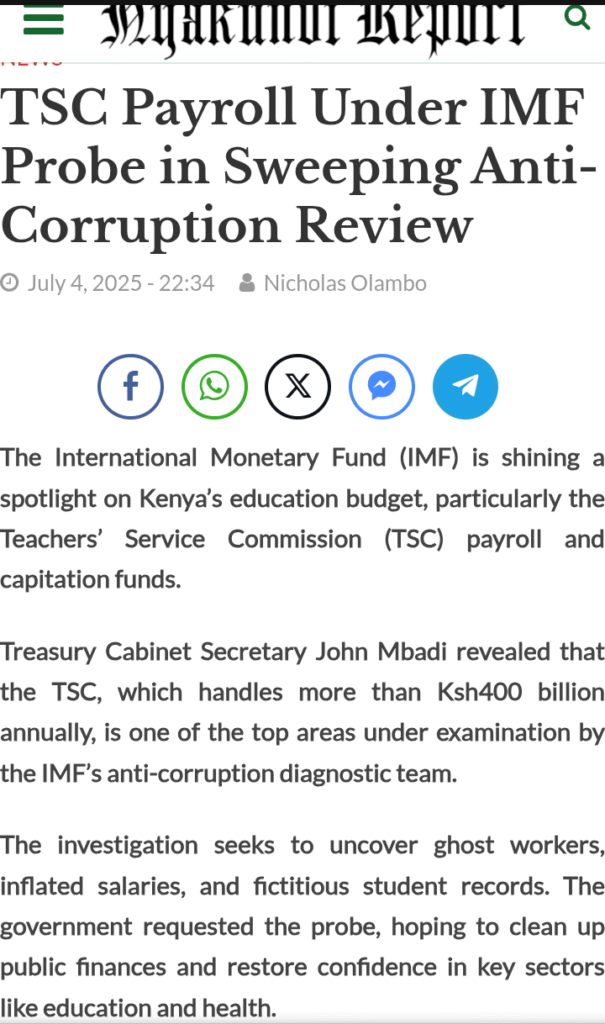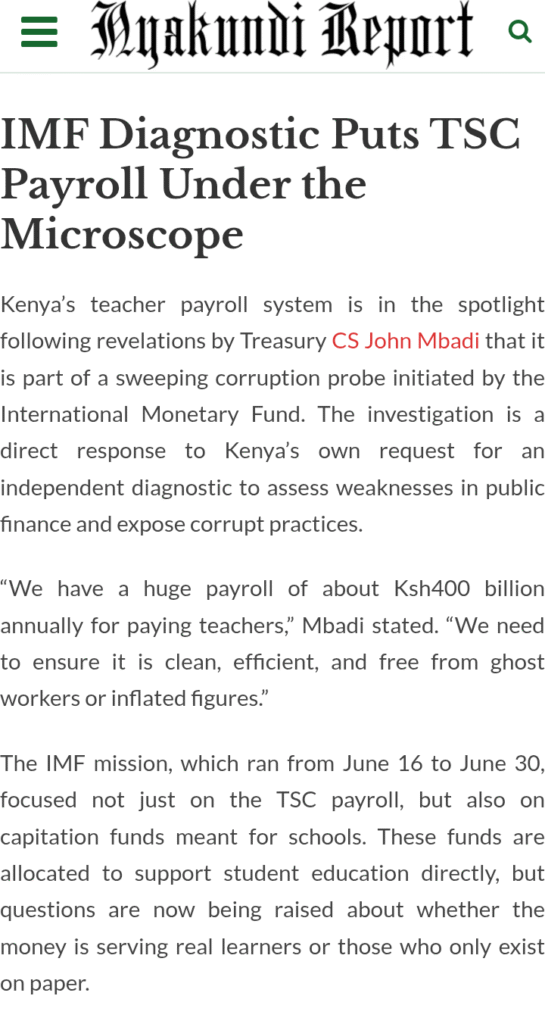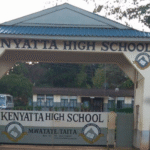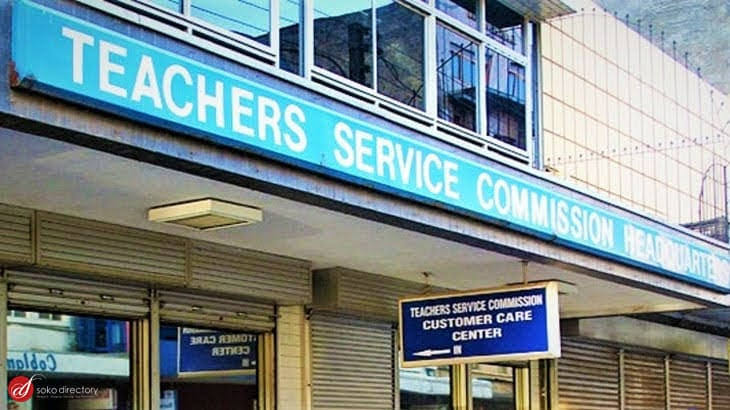Questions are beginning to rise over how Kenya manages its education budget, especially the money spent through the Teachers’ Service Commission.
Concerns are now at the center of a new international investigation that is looking at whether taxpayers’ money is being used properly or being lost through dishonest practices.
This follows the decision by the Kenyan government to invite a team from the International Monetary Fund to check for corruption within key public systems.
According to Treasury Cabinet Secretary John Mbadi, the focus is now on the TSC, which controls over Ksh400 billion every year.What raised even more concern is that the team is also checking how capitation funds are used.

These are the funds supposed to go directly to support the education of every student in Kenyan schools. Mbadi explained that since education takes up the biggest portion of the national budget, it made sense to start there. The suspicion is that some of the money may be going to students who don’t exist, or being claimed by ghost workers on the payroll.
These are not new accusations. For years, there have been whispers of fake teacher records, inflated numbers of students, and suspicious payments happening behind the scenes. Now, the IMF wants to verify if those claims are true.The probe took place from June 16 to June 30, with a team of experts led by Rebecca Sparkman. The IMF involved several of its departments in the investigation, along with officials from the World Bank.
The team’s goal was to deeply understand how public finances are managed and identify areas where corruption may be hiding. Besides education, they also looked at health and other sectors like procurement and infrastructure. Mbadi said the government itself pointed them to these areas because it already had an idea of where the problems might be.There is a lot riding on this investigation.

A full report is expected by October 2025, and while Mbadi said he believes the report should be made public, the final decision will be left to the Cabinet. If the report is made public and it confirms major fraud in how teachers are paid or how student numbers are reported, there could be serious consequences.
Kenyans are already asking tough questions, and civil society groups have been calling for more openness. Many people are tired of paying taxes while public services continue to fail.
The outcome of the IMF report could push the government to make long-overdue changes. This might include introducing new technology like biometric systems to confirm real teacher and student identities, and improving how records are kept and monitored.
With so much money at stake, even small leaks can have a big impact on the quality of education in the country.The situation is even more sensitive now, especially with the government under financial pressure and trying to meet conditions set by the IMF.
The investigation into the TSC payroll may end up showing just how deep the corruption problem goes. It could also be the starting point for real reform, especially in a sector as important as education.





















Add Comment